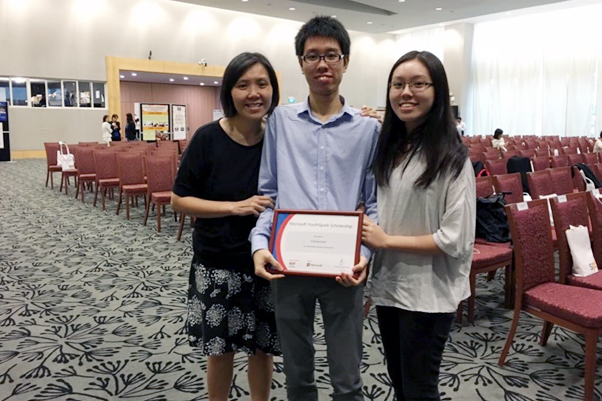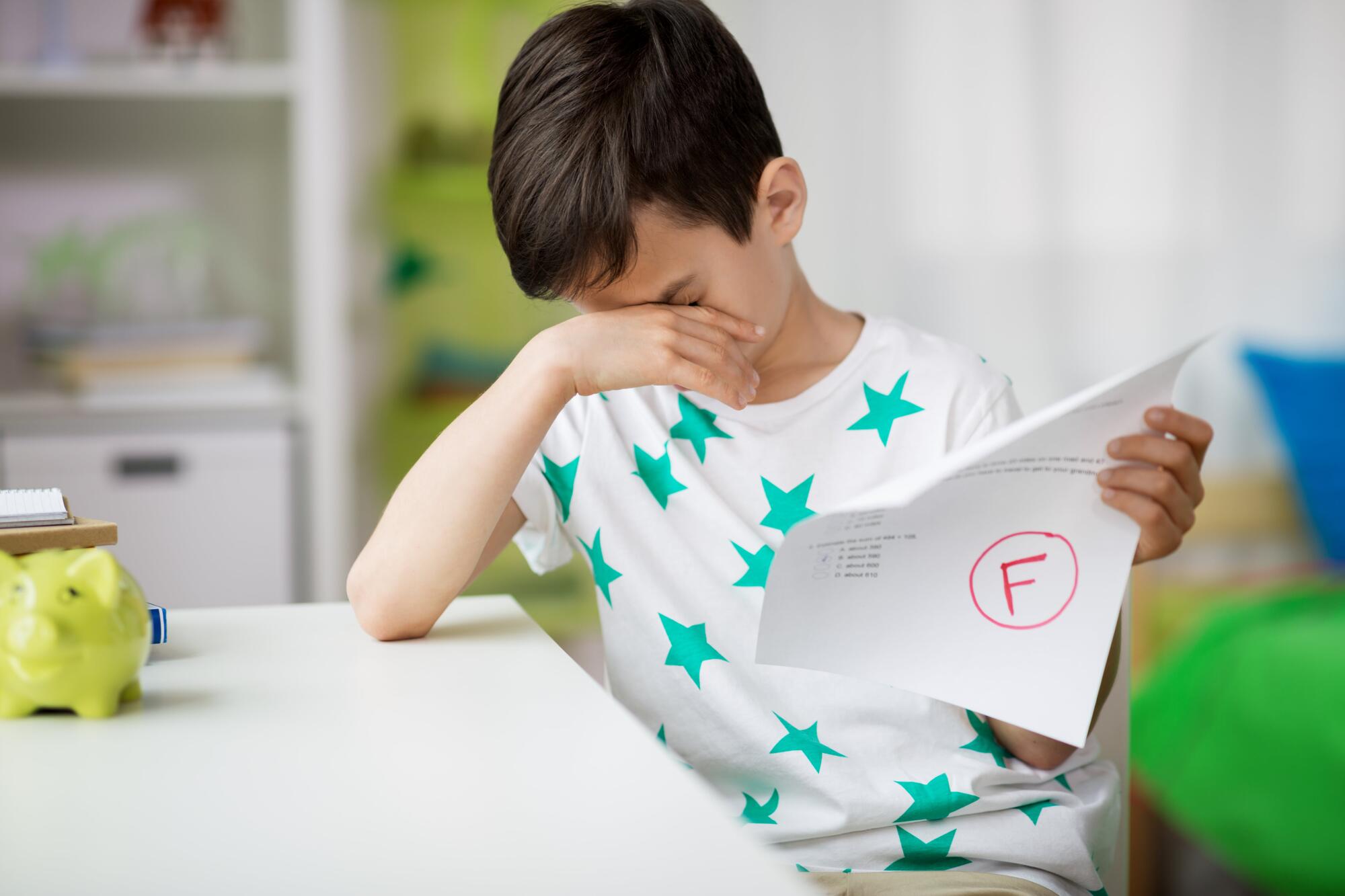Noah Si was a quiet but happy baby who smiled a lot and cried very little. He was a late talker, but neither Florence Goh nor her husband thought anything was awry.
When Noah finally began talking at the age of two, his parents felt something was amiss as he would not answer when spoken to. Furthermore, he had difficulties expressing his feelings, maintained poor eye contact, displayed a poor sense of awareness of people around him and spoke repetitively.
“I did not seek medical attention because Noah is my first child and I lacked experience raising a baby,” explained Florence.
data-sf-ec-immutable=””>Fortunately, when Noah was hospitalised for a viral infection when he was three, the doctor noticed he was still drooling and referred him to a speech and an occupational therapist at KK Women’s and Children’s Hospital (KKH).
Discovering autism
The occupational therapist suspected that Noah had autism – a condition that Florence was not familiar with. He was then sent for a psychological assessment.
“It was so new to me. I did some research online and what I found shocked me,” she shared. “Autism sounded so scary and it was a lifelong condition with no cure.”
“My instincts told me it was autism. Noah’s behaviour matched the traits. I felt my world falling apart. I felt as if I had lost my son. My dreams for him would never work out,” she added.
“I was overcome by fear, at a loss of what to do. The future seemed bleak.”
When the results were out, Noah was indeed diagnosed with ASD.
Despite her despair, she tried to find ways to help her son. She turned to the Autism Resource Centre and visited their library regularly.
She did her research, listed skills Noah should master and sought professional advice from, for example, an occupational therapist, on how to better supporthim.
Her persistence paid off when he showed a marked improvement after six months. Noah was a lot calmer and concentrated better. His attention and eye contact improved as well.
Understanding why your child acts up
For children with autism, it is crucial to differentiate between mischief and misbehaviour because they cannot help it – especially when they experience a sensory overload.
For Florence, she realised that yelling at Noah when he failed to do a task was futile. That is because Noah has difficulties processing auditorily (what he hears).
So she came up with a better way to reach out to her son – by texting messages. When she wants him to come to the kitchen for dinner, she will send him an email.
“On seeing the message, he will leave his room and come to the kitchen. I have since stopped yelling at him and he does not get angry for being yelled at, so everyone is happy,” she said.
This means understanding your child and what causes him or her to have a meltdown.
“Deal with the root of the problem rather than the symptoms. Be firm and consistent. Do not insist on your own usual way, but be open to different ways to solve problems,” she noted.
She also made a list of skills, abilities that seemed possible for Noah to pick up and mulled over what can be done to build them up.
For instance, Noah suffered from poor self-esteem when he realised he had autism. To overcome this, she focused on nurturing values of love, joy, goodness and kindness to help Noah know that he is not that different from others. She also taught Noah to pray for help and security in challenging moments.
She also taught him to realise that he will need help at times, beyond his parents, and he had to know whom to approach.
“Your child needs to remember two important things – knowing when they need help and where and how to seek help,” she said.
Making the best choice for your child
In considering the school options for Noah, Florence ensured that his teachers were aware of his condition and requested for a circle of peers to support him throughout.
“We looked very hard for a suitable primary school for him, but many schools at that time, did not welcome children with autism, as they might not have known much of the condition. He was eventually accepted in Woodlands Primary School,” she said.
Just before the new school year, they received news of the opening of Pathlight School. They decided to enrol Noah in this autism-friendly learning environment instead.
“We wanted Noah to learn happily. We were quite sure he would learn well there, and we also liked the small class size,” she observed.
Noah liked Pathlight. The autism-friendly, structured teaching methods and kind teachers working very closely with parents helped in his developmental journey.
“It was like a big family. Noah was familiar with his teacher because she was previously from the Autism Resource Centre where he attended classes, so he felt at home right away,” said Florence.
“I was glad he could learn at his own pace and also had the chance to read very widely. He is an avid reader.”
After six years in Pathlight School, Noah moved on to Sengkang Secondary School after the Primary School Leaving Examinations.
To facilitate a smooth transition to mainstream schools, close collaboration among parents, the child and the school is key.
When Florence enrolled Noah at Sengkang Secondary School, they met the School Counsellor and Allied Educator (Learning and Behavioural Support) [AED (LBS)] to interact and understand each other better.
“The school staff were experienced with students with autism, so I enrolled him in the school. We also felt welcomed because the staff and his schoolmates were friendly,” she said.
Noah coped well in Sengkang Secondary due to its good support system – with an AED(LBS) and teachers trained in SEN. Despite lacking in social skills, he made some very good friends in the school which also helped him tremendously.
He eventually did well in his ‘O’ levels and moved on to Temasek Junior College (TJC). Noah is now studying a double degree in Computer Science and Mathematics at NUS, under a Microsoft YouthSpark Scholarship.
While Noah has succeeded academically, Florence maintains that it is not the most important value.
“One tip that I have, is that we do not associate their value with their academic performance or behaviour. Teach them survival skills – good manners, grooming and personal hygiene. These are skills that will be with them for life,” she said.
“Parents, grandparents or domestic helpers cannot be there for these children forever. The sooner these survival skills are picked up, the better it is.”
Advice for Parents
As parents, your mental health is as important as your children. This will enable you to do what is best for your children.
“Parents have to help themselves first, before they can help their children. Guilt and fear can overwhelm parents when their children are newly diagnosed with autism,” she cautioned.
“Most parents blame themselves or each other, while some try to make up to the child with autism by showering them with gifts. Others go into denial, pretending everything is fine.”
For Florence, she was initially bent on “fixing” Noah till he became “normal” again. She put him through different types of therapy, but his condition remained the same.
“I felt very guilty and a lousy parent. I started worrying about what would become of him after my husband and I passed on,” she said.
Amid the guilt and doubts, it is important to move on and assist your child.
“It is natural to worry. But after the worrying, do something productive for your child. Do not remain in denial – it does not help you or your child,” she advised.
Additionally, she also shared that her faith is her source of strength, wisdom and peace.
Today, Noah has matured and is better at analysing his situation, determining what choices he has and deciding on what to do. He is also more confident in seeking help from others and is more independent.
For more information, you can view this guide for parents of children aged 0 to 6 years old.





.jpg)
